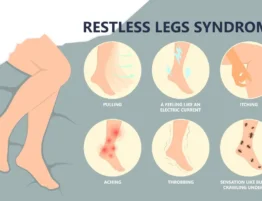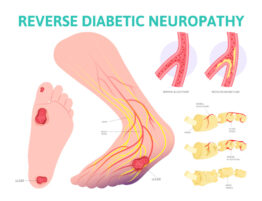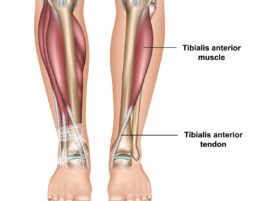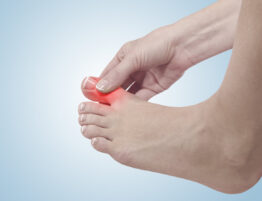

For many people diagnosed with restless leg syndrome or neuropathy, weight gain can be an unwanted side effect of the medications that are typically prescribed.
Weight gain can cause while treating neuropathy:
- Increased blood pressure: Carrying extra weight puts more strain on your heart, causing it to work harder to pump blood, which can lead to higher blood pressure. Over time, this can damage your arteries, increasing the risk of heart disease and stroke.
- Risk of developing diabetes: Excess weight, particularly around the abdomen, is a major risk factor for type 2 diabetes. Weight gain can lead to insulin resistance, where your body’s cells do not respond properly to insulin, causing blood sugar levels to rise.
- Added stress on your feet: Your feet bear the weight of your entire body, and additional pounds can exacerbate foot pain and contribute to conditions such as plantar fasciitis and arthritis. For those already experiencing neuropathy, this added stress can worsen symptoms like pain and numbness.
- Poor nerve function: Obesity can lead to metabolic and inflammatory changes that negatively impact nerve health. This can slow nerve function and worsen the symptoms of neuropathy, making it more difficult to manage.
Increased risk of developing cancer (and other diseases linked to obesity): Being overweight or obese is associated with a higher risk of several types of cancer, including breast, colon, and prostate cancer. Obesity can also increase the likelihood of developing conditions such as fatty liver disease, gallbladder disease, and sleep apnea.
In this video, Dr. Anderson talks about the dangerous potential of weight gain and how this can negatively affect your overall health.
Alternative Treatment Options for Neuropathy:
If you are experiencing these symptoms, there is hope. Many of our patients come to us with a desire to get off of their medications and explore other treatment options for neuropathy and restless leg syndrome. Here are some alternatives that may be beneficial:
- Lifestyle Changes: Incorporating regular exercise, maintaining a healthy diet, and losing weight can significantly reduce symptoms. Exercise can improve circulation and nerve health, while a balanced diet can provide essential nutrients for nerve repair and maintenance.
- Physical Therapy: Tailored exercises and physical therapy can help improve strength, balance, and flexibility, which can reduce symptoms and improve overall quality of life.
- Supplements and Vitamins: Certain vitamins and supplements, such as B vitamins, alpha-lipoic acid, and omega-3 fatty acids, have been shown to support nerve health and reduce symptoms of neuropathy.
- Alternative Therapies: Acupuncture, massage therapy, and chiropractic care are alternative treatments that some patients find beneficial in managing their symptoms without the side effects of medication.
- Innovative Treatments: Advances in medical technology have led to new treatments such as electrical nerve stimulation and laser therapy, which can provide relief for some patients.
By addressing weight gain and exploring alternative treatments, it is possible to manage neuropathy and restless leg syndrome more effectively and improve your overall health and well-being.
If you are experiencing these symptoms, there is hope. Many of our patients come to us with a desire to get off of their medications and explore other treatment options for neuropathy and restless leg syndrome. To learn more about these options for peripheral neuropathy click here.









Write a comment: